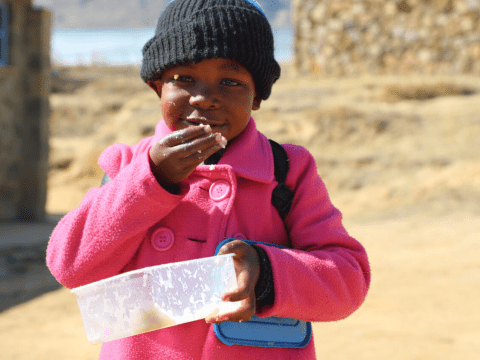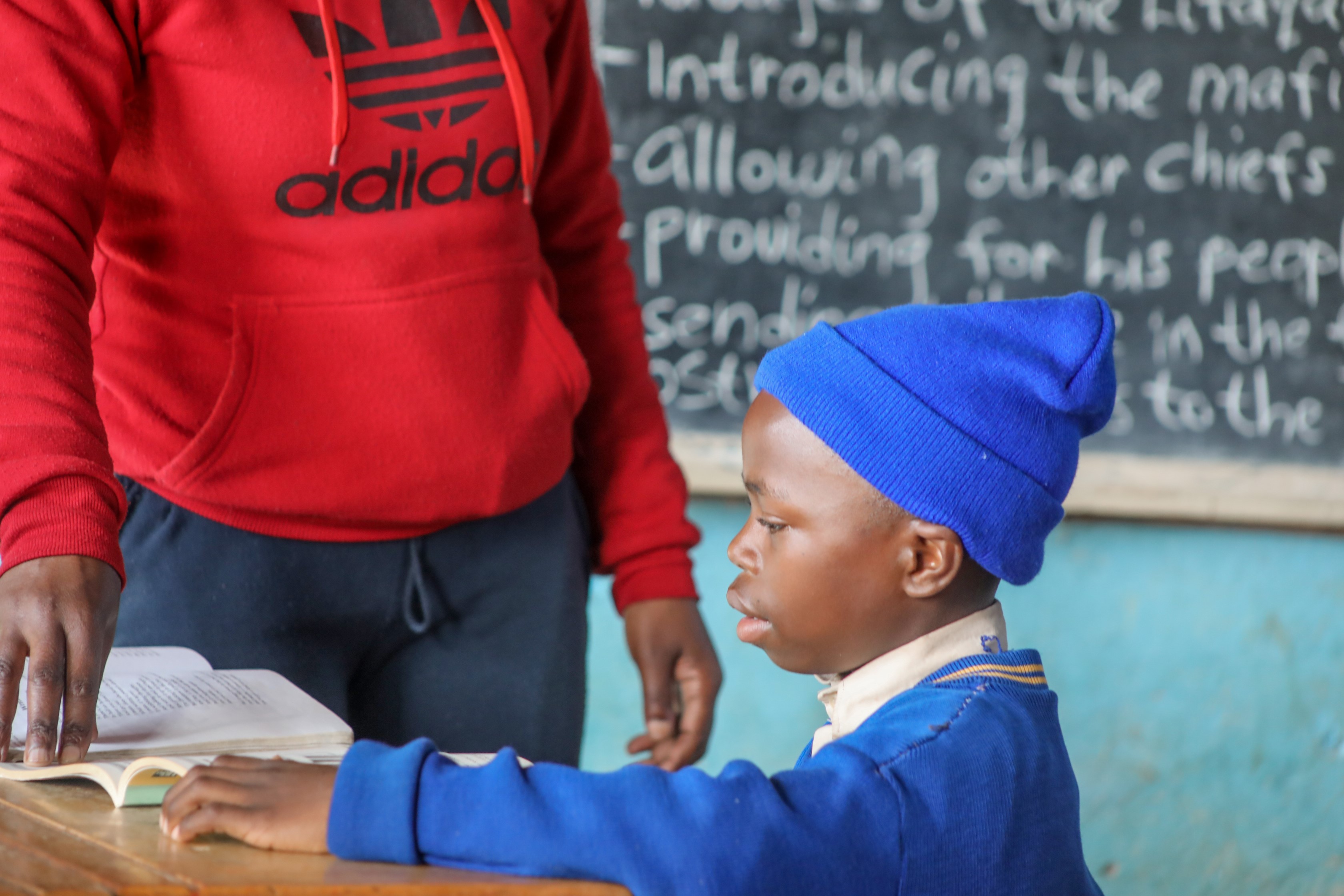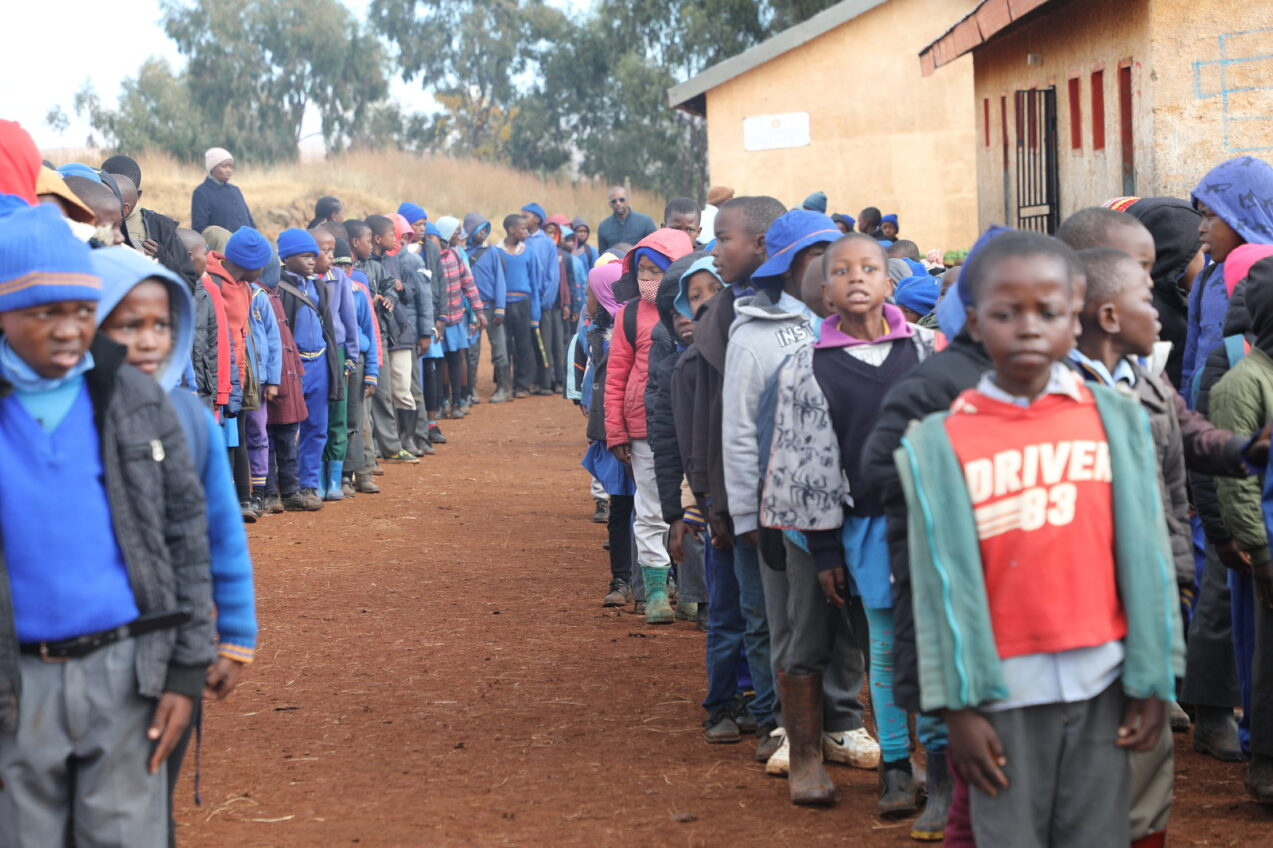Harvesting Resilience as Lesotho’s Children Confront Climate Driven Hunger

By: Pulane Chaka | Communications | Lesotho
Nestled in the heart of Southern Africa, the Kingdom of Lesotho, with its picturesque landscapes and resilient people, faces an increasingly dire threat: climate change. As global temperatures rise and extreme weather events become more frequent, the Mosotho child, like many around the world, bears the brunt of this environmental crisis. But how exactly is the Mosotho child affected by climate change?
The Toll on Agriculture-Reliant Communities

Imagine a community heavily reliant on agriculture. The people in that area live off the land, and their children benefit from the farming practices as well. Now, picture temperatures starting to fluctuate and change in unpredictable ways. Rainfall transforms into floods, sunny seasons morph into heatwaves, which in turn give rise to droughts. Crops that once thrived in moderate conditions wither in the blistering heat, and floods wash away soil and seeds from their beds. This is how climate change is affecting the average, agriculture-reliant family in Lesotho.
Lesotho's economy is heavily dependent on agriculture, making it acutely sensitive to climate fluctuations. When crops fail, families often lose their primary source of income. The economic implications impact children directly, as their families struggle to meet basic needs, including healthcare, education, and nutrition.
Rising Temperatures and Health Risks

Rising temperatures have brought about increased risks, such as exhaustion and heatstroke. There's also an alteration in the distribution of disease-carrying vectors like mosquitoes and ticks, leading to the spread of diseases such as dengue fever and malaria. Changes in precipitation patterns and temperatures can affect water quality and the spread of waterborne illnesses.
Altered temperatures and humidity conditions can influence the growth of foodborne pathogens, increasing the risk of food poisoning and related illnesses. Children are particularly vulnerable to these diseases due to limited access to healthcare facilities and resources, especially in rural and hard-to-reach areas. Furthermore, extreme weather events like floods and storms can result in injuries and trauma, further compromising their well-being.
Impact on Education

Climate change-related disasters can disrupt the education of the Mosotho child. Flooding, for instance, can render roads impassable and damage school infrastructure. Additionally, the need for children to assist their families in coping with the effects of climate change, such as collecting water from distant sources or entering child labor ventures to support their families financially, can lead to increased school absences and dropout rates.
Water Scarcity and Drought

Water scarcity and drought, intensified by the effects of climate change, pose a significant challenge. The majority of children in Lesotho reside in rural regions and rely on farming as their primary source of sustenance. Disrupted rainfall patterns and prolonged periods of drought have resulted in failed crops, food scarcities, and malnutrition, significantly impacting the health and welfare of our most vulnerable population.
The Threat to Future Potential

The changing climate has disrupted traditional farming practices in Lesotho, and families are struggling to put food on their tables. Children are especially vulnerable to malnutrition, stunting their physical and cognitive development. This not only affects their current quality of life but also hampers their potential for a brighter future.
Our Collective Obligation

Climate change is an urgent and existential threat that affects us all, but it disproportionately impacts vulnerable communities. As global leaders grapple with solutions to combat climate change, it is crucial to prioritize the needs and well-being of our most vulnerable, children. Now more than ever, 'a world where every child enjoys enough nourishing food so they can thrive, now and in the future' is our collective obligation.
We have enough resources to end child hunger and malnutrition. Eco-friendly progress, climate preparedness, and access to education and healthcare must be at the forefront of our efforts to secure a brighter future for the Mosotho child and all children around the world. By addressing the root causes of climate change and mitigating its impacts, we can hope to provide a safer, healthier, and more prosperous future for the Mosotho child and generations to come.